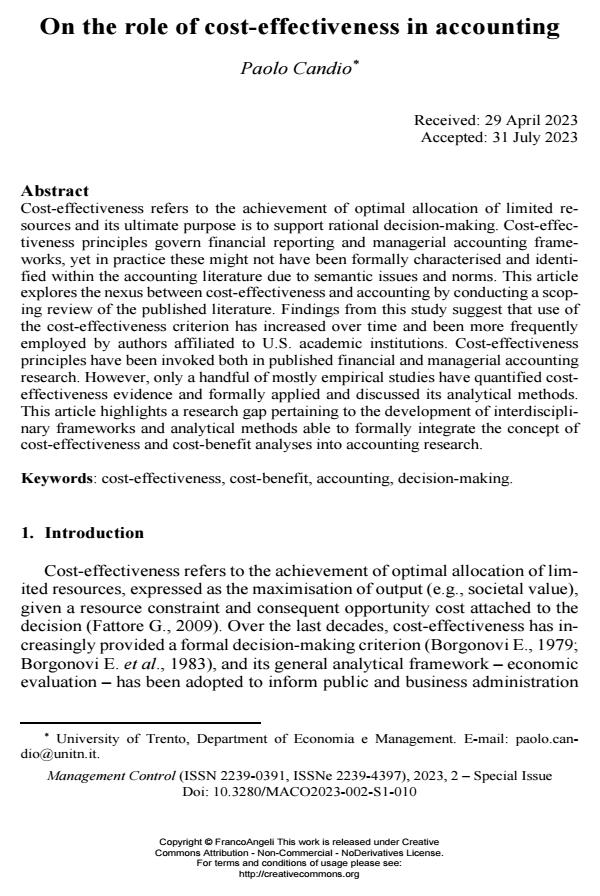On the role of cost-effectiveness in accounting
Titolo Rivista MANAGEMENT CONTROL
Autori/Curatori Paolo Candio
Anno di pubblicazione 2023 Fascicolo 2023/2 Suppl.
Lingua Inglese Numero pagine 11 P. 215-225 Dimensione file 197 KB
DOI 10.3280/MACO2023-002-S1010
Il DOI è il codice a barre della proprietà intellettuale: per saperne di più
clicca qui

FrancoAngeli è membro della Publishers International Linking Association, Inc (PILA), associazione indipendente e non profit per facilitare (attraverso i servizi tecnologici implementati da CrossRef.org) l’accesso degli studiosi ai contenuti digitali nelle pubblicazioni professionali e scientifiche.
Cost-effectiveness refers to the achievement of optimal allocation of limited re-sources and its ultimate purpose is to support rational decision-making. Cost-effectiveness principles govern financial reporting and managerial accounting frameworks, yet in practice these might not have been formally characterised and identified within the accounting literature due to semantic issues and norms. This article explores the nexus between cost-effectiveness and accounting by conduct-ing a scoping review of the published literature. Findings from this study suggest that use of the cost-effectiveness criterion has increased over time and been more frequently employed by authors affiliated to U.S. academic institutions. Cost-effectiveness principles have been invoked both in published financial and mana-gerial accounting research. However, only a handful of mostly empirical studies have quantified cost-effectiveness evidence and formally applied and discussed its analytical methods. This article highlights a research gap pertaining to the de-velopment of interdisciplinary frameworks and analytical methods able to formal-ly integrate the concept of cost-effectiveness and cost-benefit analyses into ac-counting research.
Parole chiave:cost-effectiveness, cost-benefit, accounting, decision-making.
Paolo Candio, On the role of cost-effectiveness in accounting in "MANAGEMENT CONTROL" 2 Suppl./2023, pp 215-225, DOI: 10.3280/MACO2023-002-S1010